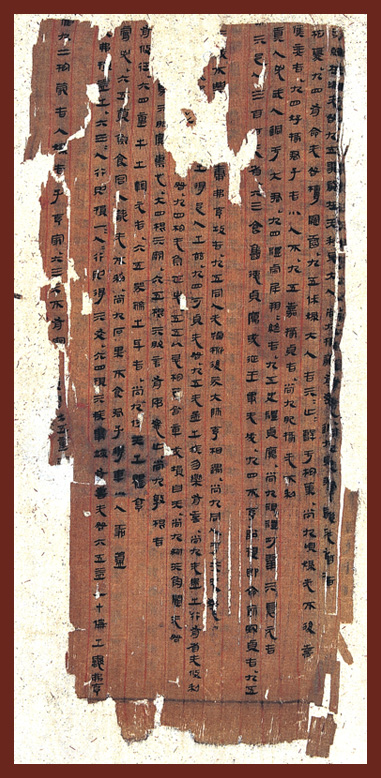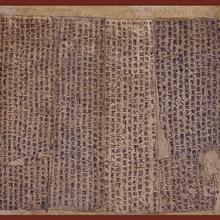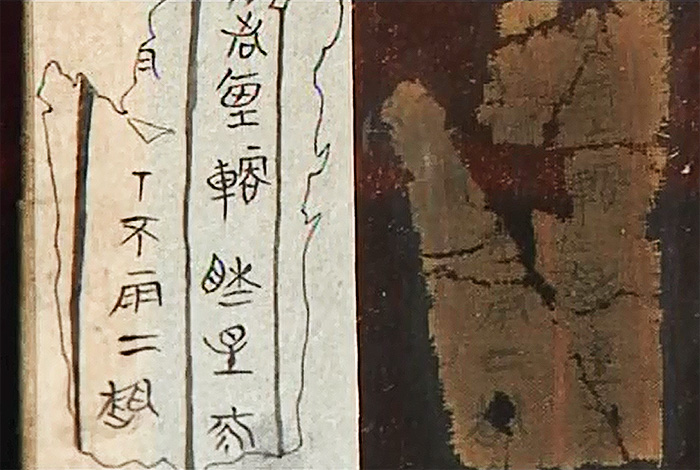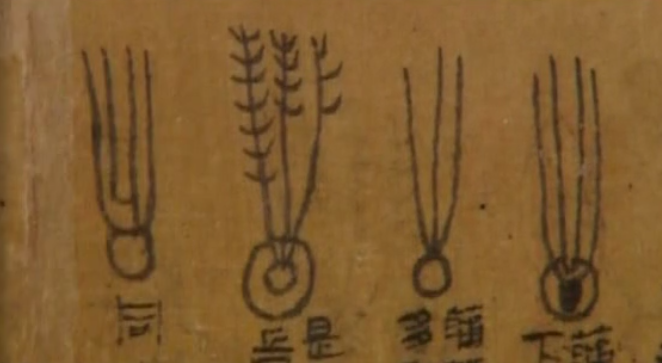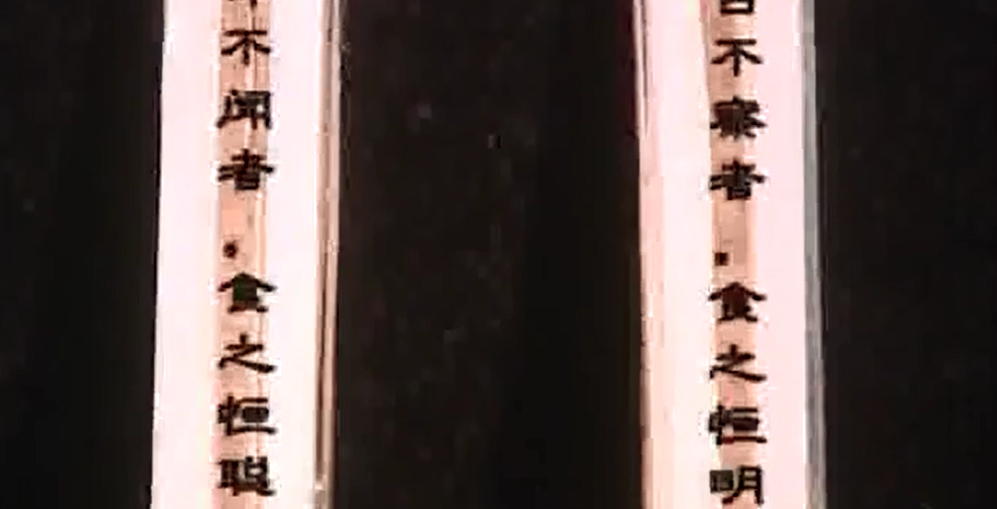Dimensions:Length:30cm; width:21.5cm; height:48cm
Origin: Unearthed from Han Tomb No.3 at Mawangdui in 1973
Written in official script on a whole length of silk, it consists of both the text and the commentaries of Book of Changes. The text here refers to the Sixty-Four Hexagrams, but compared with traditionally-accepted modern and ancient editions, this version shows significant differences in the names of the trigrams as well as the sequence and statement of the trigrams and the statement of the lines.
For these reasons, it can be called another version of Book of Changes. Some experts believe that since the sequence of trigrams in this Book of Changes is rather simple, it should be considered a fairly early version and its date of being copied out should be the first years of the reign of Han Emperor Wendi.
The commentaries are mostly anecdotes that have not passed down, and they record discussions and interpretations of the trigrams and lines between Confucias and his disciples. The arrangement of this Book of Changes copied on silk was made after careful consideration: it begins with the text, then moves on to the explanation of the text, the connotative commentaries and the records of events beyond the interpretation, and finally ends with sayings and epigrams by great masters who passed down the book.
If we look into the process of its creation and its early application, Book of Changes was originally a book on divination. It became an extensive and profound Chinese classic of philosophy and the oldest classic of oriental philosophy after Confucian scholars made philosophical interpretations of it. It became a book that explores and interprets the principles of such issues as the universe, human life, human spirit, and material. For a long time, it was honored as the foremost of the “six classics”, and is a canon of ancient Chinese social and natural science. Therefore, the thinking mode, philosophy of life and mathematic induction as embodied in Book of Changes have profoundly influenced and even dominated the thinking pattern and life attitude of people in China as well as in other countries within the Chinese cultural circle. In the development of natural science, it also has played the role of philosophical guidance. Book of Changes holds an incomparable position in China’s cultural history and remains a brightly-shining pearl in the history of world culture.
